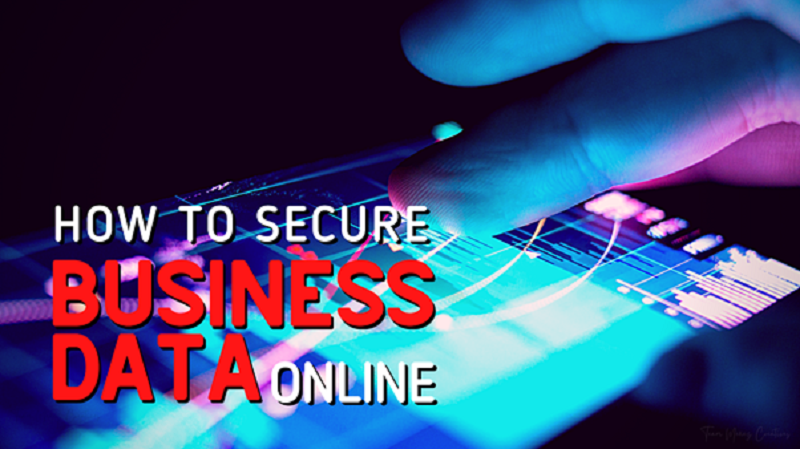
Business data protection should be a top priority for all businesses, regardless of whether it is a small business or a big corporation. There are around 35,000 security breach cases recorded every year. The most common attacks include email or phishing scams, hardware theft, and unauthorized access to a network.
Hackers continue to innovate how they can plant malware to sabotage websites for profit. The most alarming of these attacks aim at security breaches to steal data.
Once a data breach is successful, the costs can be staggering for businesses to restore operations or pay for damages when the security breach involves consumer data. In 2020 alone, average cost of a data breach was $3.86 million.
It is why cybersecurity is more critical when doing business online. Businesses must take the necessary steps to defend their website from cyber attackers who are dead set on stealing data or to inject viruses to disrupt and destroy systems.
Although no security system is 100% immune to attacks, no matter how robust they are, it is still wise to set several safety measures to make the business as impenetrable to hackers as possible. It is also efficient to leverage software to boost business and its security.
Check out how you can secure your business data online to protect both your business and your customers:
7 Basic Steps in Securing Your Business Data Online

1. Only Save What is Necessary
You need to guard all kinds of data you collect on your site, whether it is from your employees or customers. Companies frequently retain more information than is required, putting their customers at risk.
Only save the details you need to run your company to restrict what hackers might steal. Avoid gathering something extra, even though you need the details on a temporary basis, get rid of it after use.

2. Regularly Update Your OS (Operating System)
Always update your operating system to get the latest security upgrades and patches as well. Check for, and install, the latest updates to protect your device. Most hackers search for compromised networks with outdated protection.
Look for anti-virus applications with automated upgrades. Additionally, you can utilize software to detect spyware and spam-blocking. Attackers may install these programs covertly from outside the operating system, which allows them access to classified information.
You can boost your business with a reliable operating system and the use of a server data centre to manage and defend your precious business data.
3. Use Encryption Tools in Corporate Transactions to Avoid Data Theft
Most banks require eCommerce and business websites to have data protection to secure consumers using their credit and debit cards. If you fail these requirements, you will not be allowed to process online payments at all.
Being in line with such requirements is daunting for small companies because they do not have the money or higher levels of operations or security skills.
To comply with payment authorization, companies would find it costs twice as much outsourcing. So, it is a smart idea to subcontract payment processing to a company like PayPal and the like.
Encryption is also crucial for protecting a company’s internal information, including personnel files, product information, financial accounts, and other data.
It will deter an attacker from entering the operating system of your company illegally because the information is encrypted. Typically, hackers move on to their next goal because it will cost them more time, effort, money, and energy to efficiently get through to your site.

4. Keep An Information Inventory
Most mobile devices provide a range of easy ways to store and share files. Although it is convenient, it also opens more chances for data breach and theft.
In fact, Amazon’s CEO Jeff Bezos photo was reportedly hacked through a file sent through a WhatsApp message.
Large amounts of data were reportedly taken from Bezos’s phone within hours.
Senior government officials in multiple U.S.-allied countries were also targeted in 2019 through the same app to overtake users’ phones. Many of the targets are high-profile officials and military officers on five continents and at least 20 countries.
Why do hackers target high-ranking personalities, be it in private and government sectors? Because of the data, hackers can still be more valuable, more damaging for the businesses or offices they belong to, and more profitable for hackers to market to other hackers.
It is why you need to keep track of what information you store, where you store it, and who has access to it. Ensure that the data backup contains both electronic and physical data containing classified information.

5. Store Physical Documents Securely
Cyber attacks may be a more prevalent threat, but missing or stolen records may be just as bad. Whenever records contain classified material, they must be kept secure from prying eyes.
Keep records in a secure file cabinet or room that can only be opened by the most dedicated personnel. Dispose of records by going through the shredder.

6. Do not Use a personal credit card for business purposes
The easiest and most reliable form of payment for business expenses is through a credit card. But make sure you get one that is intended for business because banks do provide customized protection against fraud. Banks act on disputed transactions immediately, so in case of fraudulent transactions, your money is safe throughout the dispute.
Business owners can also specify limits on sending money on employees’ cards and opt for instant notifications of transactions either through email or texts.
Credit cards provide the most security and safety features, and their riskiness is reasonably balanced compared to other payment types. Security is not the only advantage of corporate credit cards since they can provide accurate spending reporting and an incentive to optimize the travel benefits.

7. Control Access to Business Data, Accounts, and Systems
Special software can spot irregular patterns of computer activity. Some programs and plugins track outbound emails and can protect data from being breached.
For companies, whose employees need an enhanced level of supervision, it is essential to provide more than just a username and password. Password upgrades are not organized enough to have the same level of protection according to company standards.
Conclusion: Protect Your Business Data Diligently
Several small enterprises have been taken down by preventable security problems. While the risk of stolen data or instances of fraud cannot be entirely removed, the right security policies and correct security practices can reduce risks and prevent data from being compromised.
Take action to mitigate any issues and consequences of fraud once you suspect your IT systems have been affected. Check your applications with the new security software, run the necessary scans and repairs, adjust your login data, and call IT experts if necessary.
Perform daily reviews on your financial records and stay up to date with security upgrades and anti-virus scans.
Schedule a meeting with your team to discuss cybersecurity concerns and even educate them to know the new cybersecurity threats to fight off.. It needs continuous awareness, training, and planning to defend your business data online effectively.

Author Bio:
Mayleen Meñez worked for seven years in TV and Radio production, and as a Graphic Artist/Editor. Finding her true passion, she devoted 15 years in NGO and community development work, where she experienced being a coordinator and teacher, travelling both in the Philippines and countries in Asia.
She homeschools her three kids and reinvents Filipino dishes in her spare time. Writing has always been a hobby and pursuit, and she recently added content writing to her skills.















